Voices from the Arab street
Dignity, security and employment are top on the wishlist for the new year.

The past year has been particularly tumultuous in the Arab world: a devastating war in Gaza; ISIL’s expansion; the seemingly endless civil strife in Syria; a worsening refugee crisis and the growing number of failed states.
We spoke to people in Iraq, Jordan, Yemen, Morocco and Syria about this past year and what they hope for in the new year.
Keep reading
list of 4 itemsBirth, death, escape: Three women’s struggle through Sudan’s war
Does Israel twist humanitarian law to justify Gaza carnage?
Vatican denounces gender-affirming surgery, gender theory and surrogacy
| Ghofran Wali, Iraqi human rights activist |
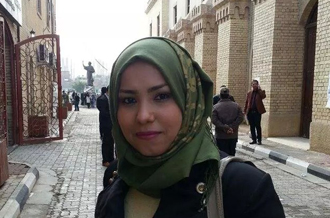 |
| Ghofran Wali [Al Jazeera] |
I had many wishes that I really wanted to come true in 2014. My biggest wish is that my country will be safe, secure and free of ISIL.
I wish all the displaced people would be able to go back home and I wish to find a permanent job.
| Murtadha Zayer, Iraqi soldier |
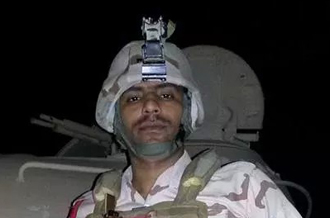 |
| Murtadha Zayer [Al Jazeera] |
I wish to stay alive long enough to witness the liberation of all Iraqi lands from those “monsters” [ISIL fighters].
These are just wishes, right? I wish that everyone would talk about me and my colleagues’ [military] achievements and the government would name one of the liberated areas after me and of course I want a car and house to live a comfortable life after I leave this job and become a civilian.
| Kamal Aiyash, displaced Iraqi taxi driver |
I wish to find myself out of the “traders of blood” in this country and if these wishes are not possible, then I wish to
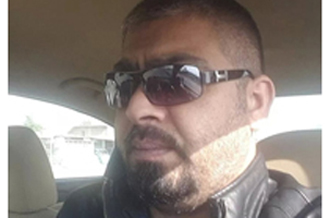 |
| Kamal Aiyash [Al Jazeera] |
move to a country that would offer my children a decent life with dignity, a life different than this one which I still live and suffer for.
| Mohammed al-Zurqa, unemployed Yemeni |
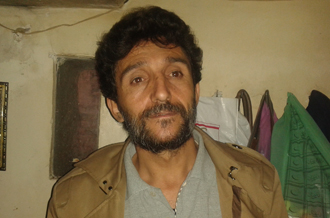 |
| Mohammed al-Zurqa [Al Jazeera] |
2014 has been the worst for Yemen. It has been worse than the previous years. It has been difficult, very difficult for me. I have a family, six children to feed, educate and look after and I have no work.
The Houthis, Islah, Ali Abdullah Saleh, Hamid al-Ahmar, all of them are liars. After the 2011 uprising, I had hope, but now no – nothing.
The US, Britain and the GCC countries decide policies and say they are helping people, but we haven’t felt the difference. When the security situation is difficult they disappear, but we, the people, are still suffering.
Inshallah, in 2015 I will find work. I want a good Yemen – a Yemen without fighting, violence. No guns, no killing, no explosions. I want to find any work so I can look after my family, that is my only hope.
| Maysa Mostafa Ahmed, Yemeni housewife |
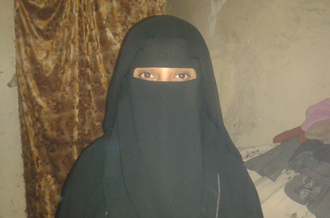 |
| Maysa Mostafa Ahmed [Al Jazeera] |
I’m not sure who controls Yemen today. We need a government, not some armed men walking on the roads.
My worst moment was seeing innocent children die in the Radaa explosion this month. There is no security at all. When my children leave in the morning, I don’t know whether or not they will return. At this rate, what’s to stop this happening to my children, I fear?
We have no security, no peace. Ali Mohsen is in Saudi and Hamid al-Ahmar in Turkey, we’re still here, suffering because of their actions.
For 2015, my hope is to find work and a safer environment for my children. It’s very difficult, but we have to hope.
| Mohammed al-Qalisi, Yemeni journalist |
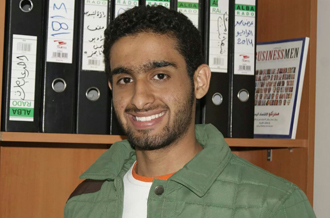 |
| Mohammad al-Qalisi [Al Jazeera] |
Looking back at this year, some of my worst days were when I heard Yemen was without a government, army, or security. There was nothing in Yemen. Just armed men on the rampage in Sanaa and the rest of Yemen.
What did we do to deserve this?
I want a lot of things in 2015. First I just want to feel safe and I want people to be safe. I want hospitals where people are cared for. I hope the new government will first tackle security and then tourism.
And I want my mum to get better soon, but the health care is so poor here. We often have to leave the country and seek treatment elsewhere, and it’s expensive.
| Muna Abdulla, Yemeni teacher, American Institute for English |
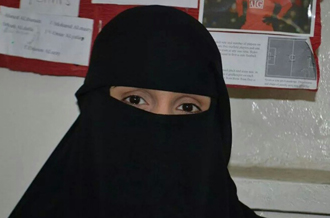 |
| Muna Absulla [Al Jazeera] |
The explosion in Tahrir Square in October really shook me. Bodies were scattered everywhere on the streets. And I also didn’t like it when the Houthis attacked Sanaa. Since then everything has just got ten times worse.
I really want the government to regain control of the country. Hopefully, I get a new job, better salary and I get married next year.
| Abdo Elfgeeh, Yemeni investor |
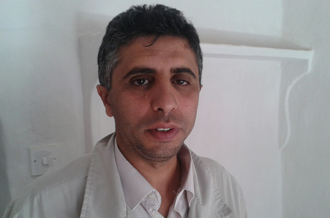 |
| Abdo Elfgeeh [Al Jazeera] |
When the Houthis invaded Amran, I thought this was the end. Nothing was done to stop them. I told myself, “this is it”. I put a halt to my project to see what happens next. Everyone was just suspecting, but no one exactly knew what was happening. None of the Yemenis expected it to get this much worse.
The military has no state to back them. I am not in favour of any militia replacing the state – whether Houthis or not. The tribes are manning checkpoints to see documents, and some of them can’t even read, that’s insane.
I arrived in Yemen two years ago, thinking after the revolution the situation would improve and business would pick up. But, the opposite has happened. It’s very difficult to function in a lawless society.
Moving forward, I hope the Houthis, the West, and the GCC will learn from their mistakes. We Yemenis have inner resistance but no reliable leadership and what we fear are the foreign factors. We desperately need leadership in the coming year.
| BenAbbass Milouda, Moroccan cleaning lady |
I think that, in general, we saw no change in 2014.
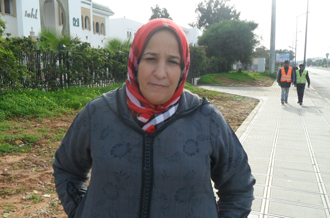 |
| BenAbbass Milouda [Al Jazeera] |
This year was full of deaths. I am not happy with the government. I will vote in the next elections and I have already decided which political party I will vote for and I hope that they would do well and succeed.
We pray to God that this year will start with good events and that it brings peace and prosperity upon Muslims and all the people of the world.
| Said Bennis, Moroccan professor at Mohamed V University |
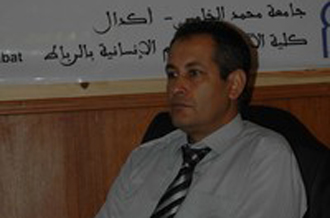 |
| Said Bennis [Al Jazeera] |
2014 was a different year because of the special events that marked it, most important of which is rise of ISIL.
Locally, I think Morocco is moving toward democracy, and we have seen many changes.
All of this, however, doesn’t mean that there are no mistakes.
There are signs that the road towards democracy is still long.
| Majda Bouchama. Moroccan housewife |
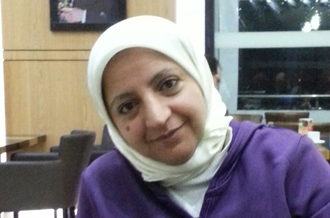 |
| Majda Bouchama [Al Jazeera] |
I feel sorry for the people dying in Syria, Palestine and Iraq and how no one has done an effective step towards establishing peace in these lands this year instead of killing more citizens.
2014 was also a year of troubles in Morocco where people died in floods and citizens didn’t accept the government’s decisions but I think that every change brings up criticism and judgment.
I just hope that they would make good decisions and that 2015 would be a better year because we are advancing, slowly.
| Nazir Hilli, Syrian salesman |
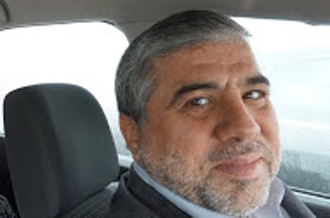 |
| Nazir Hilli [Al Jazeera] |
I came from Syria a year ago from Idlib. First I went to Antakya, but then to Gaziantep. There was no good work in Antakya.
Three of my children, two sons, and one daughter, live with me. They are the youngest. I have three daughters, older, in Syria. They attend school there.
I like the people here. I am busy with work in a company that sells granite. It is owned by a Turkish person.
There are many Syrian orphans here. I visit them, give them food, things they need, and I visit the families of martyrs. Thank God, I am able to help them.
To tell you the truth, life is hard here. The work here is not good, it does not pay much. And there are no schools here, this far from the border, that you do not have to pay [to send your children there].
I plan to return to Syria as soon as I can. I want to bring my family back together. We are all scattered.
| Zainab, Syrian housewife |
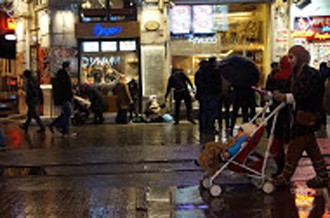 |
| Zainab [Al Jazeera] |
We are from Aleppo. We came to Turkey about a year ago. I am one of a million Syrians here. My husband is sick, he cannot work.
The Turkish government is good to us. But police, the municipality, they come bother us when we sit here [on the street to beg]. Life is very difficult here. I cannot afford to pay for anything. No one in my family has work. My children are too young to work.
We destroyed our country ourselves. There is nothing left there. I want to go back, but I cannot imagine when I can go back. I have no idea what might happen in a year.
| Fatima, Syrian housewife |
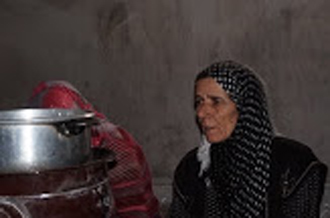 |
| Fatima [Al Jazeera] |
We came to Turkey one year ago. We live in two buildings here, there are ten families, mine, and the families of my sons. We lived near Homs. I have four sons. They all worked in Syria, one was a barber, one was a driver … they all had work.
My sons sell small things, socks, or clothing, on the street here.
We left because some airplanes dropped bombs around us. Big bombs, in barrels. My brother was killed. Life here is expensive, everything is expensive, food, fuel, housing. We had nothing to do with Assad or the revolution.
People help us. People from Turkey, from Germany, from Iraq. They walk by here and give us money. They give food. They give us clothes. My sons cannot go to Europe [like other Syrians are doing], because they have families here. They have to find work here. But we will go back to our country.
It might take three years, or five years, or 30 years. We want to go back to our own country.
There is not a single benefit that has come from this revolution.
| Khidr Abdelrahman, Syrian worker |
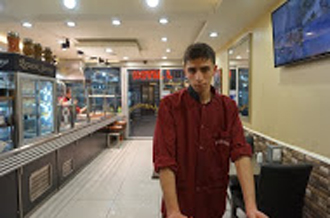 |
| Khidr Abdelrahman [Al Jazeera] |
I am from Damascus. When the war started, I was in high school. We left Syria three years ago. There was a bombing, there were six people killed and many injured, like 200 metres from my home.
First I moved to Diyarbakir. There was not any money to be made there, so I came to Istanbul to find work.
In Istanbul, everything is more expensive. I live in a neighbourhood called Tarlabashi, because it is cheap. I want to move. I work from 12 in the afternoon to 12 at night. I learned some Turkish, and I know some English. I want to learn more English, so I can find a better job.
Turkey is paradise. Syria is hell. Before everything, Syria was paradise.
I have no idea when I will be able to return to Syria.
| Mohanad Abdullah, Syrian worker |
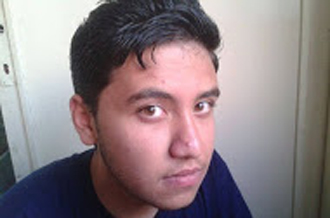 |
| Mohanad Abdullah [Al Jazeera] |
We came to Turkey one year and three months ago. We lived in Aleppo, where my father had a shop selling aluminum. He used to go to Aleppo to check on the shop, but for the last month, it has been too dangerous, so he sold the shop.
Lately the Turkish people treat us in a different way. When we first came to Turkey all the people were nice, but now they have changed, they kind of dislike us.
After three weeks in Turkey, I got a job in a factory.
I am studying at a private high school. I am taking English lessons, like as a separate thing, so I can apply to other schools abroad.
My plan is to finish high school, I have half a year left, get a good score in my exams, and maybe I can manage to apply for a scholarship outside of Turkey.
| Mohammad Fudailat, Jordanian journalist |
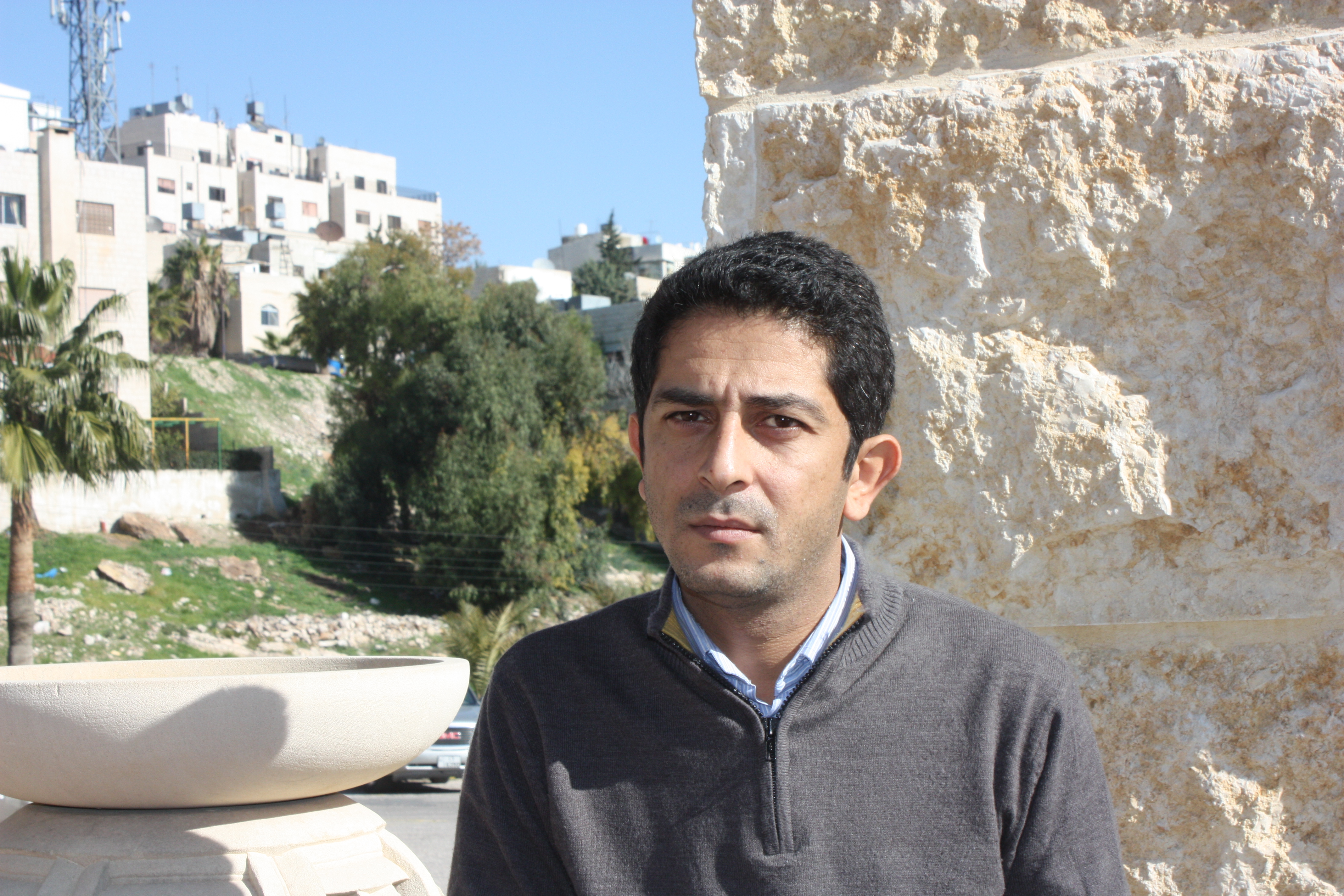 |
| Mohammad Fudailat [Al Jazeera] |
In 2014, crises in Jordan have deepened on all levels; any venues of political reform were blocked.
The government has passed on several laws and constitutional amendments that only serve its agenda but ignored the demands of people such as passing on new laws for elections and political parties.
The economy remained very bad despite all the assurances the government made to the Jordanians that the situation will improve.
The situation remains very hard despite all the promises of reforms the government made.
2014 was exhausting for me as a journalist; reporting on local news starting with the kidnapping of the Jordanian ambassador to Libya and now the kidnapping of the Jordanian pilot Maaz Kassasbeh in Syria by ISIL. Events in Jordan, whether political, social, or even cultural, were moving fast and chaotically.
For 2015, we hope the government proves to be honest and meets its promises to the Jordanian people. We hope the economy improves, political participation is better, and we hope to see reforms.
| Osama Shahdeh, Jordanian researcher and member of the Kitab and Sunneh Society |
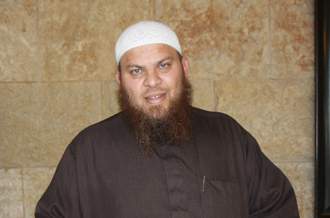 |
| Osama Shahadeh [Al Jazeera] |
This year was a very difficult year not only for us in Jordan but for everyone in the region, starting with the war on Gaza and the silence of the international community about it.
We have seen regress in what the Arab Spring should have achieved. We have seen this in many other Arab countries, unfortunately, where the outcome was negative.
The economy, which was the major cause for the Arab Spring, did not improve. In fact, it has worsened in most Arab Countries.
We hope 2015 brings relief to people. We hope to see a decline in prices and an improvement in the living conditions of people.
I hope people [throughout the Arab world] learn from the Tunisian experience.
| Ali Saleem Nawbani, Jordanian restaurant owner |
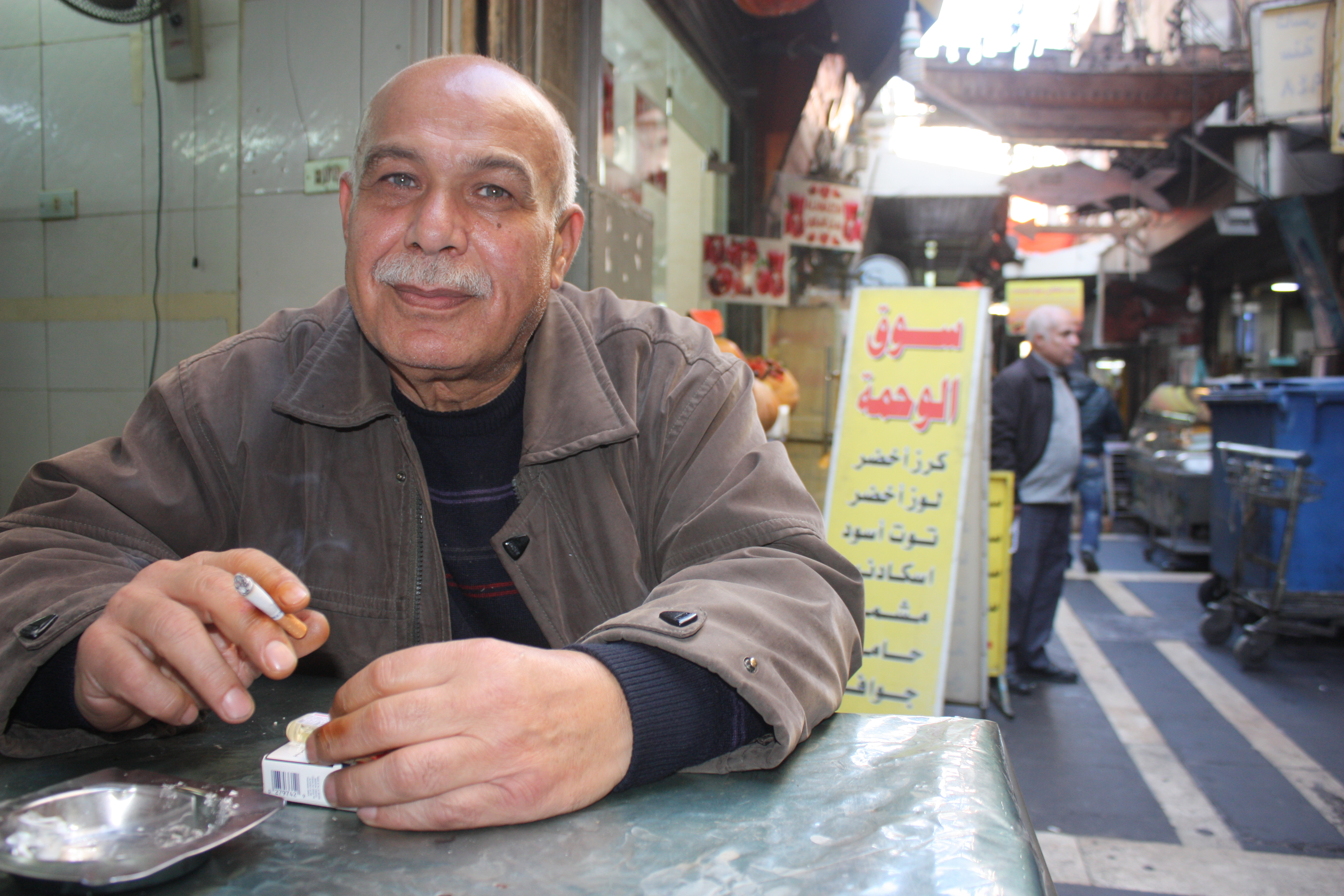 |
| Ali Nawbani [Al Jazeera] |
Bitter is the word to describe the year 2014 .
Strategies and policies implemented by Arab governments did not aim to provide comfort for their people. The general feeling among people was restlessness. Nobody expected what happened in countries around Jordan (Syria, Iraq, Palestine). The situation was depressing and horrific.
Here in Jordan, it was noticeable that crimes were increasing. It seems like people are no longer patient with one another. I heard horrific stories I had not heard before in Jordan, like the man who shot dead another guy over traffic jam in Amman. We hear of problems everywhere and every day. This is making everyone restless.
We hope 2015 brings peace and happiness to all Arabs. Jordan remains safe in comparison with other countries. I am sure once people have tasted the feeling of peace and stability everything will fall into place.
| Hassan Abu Ali, Jordanian owner of a book kiosk |
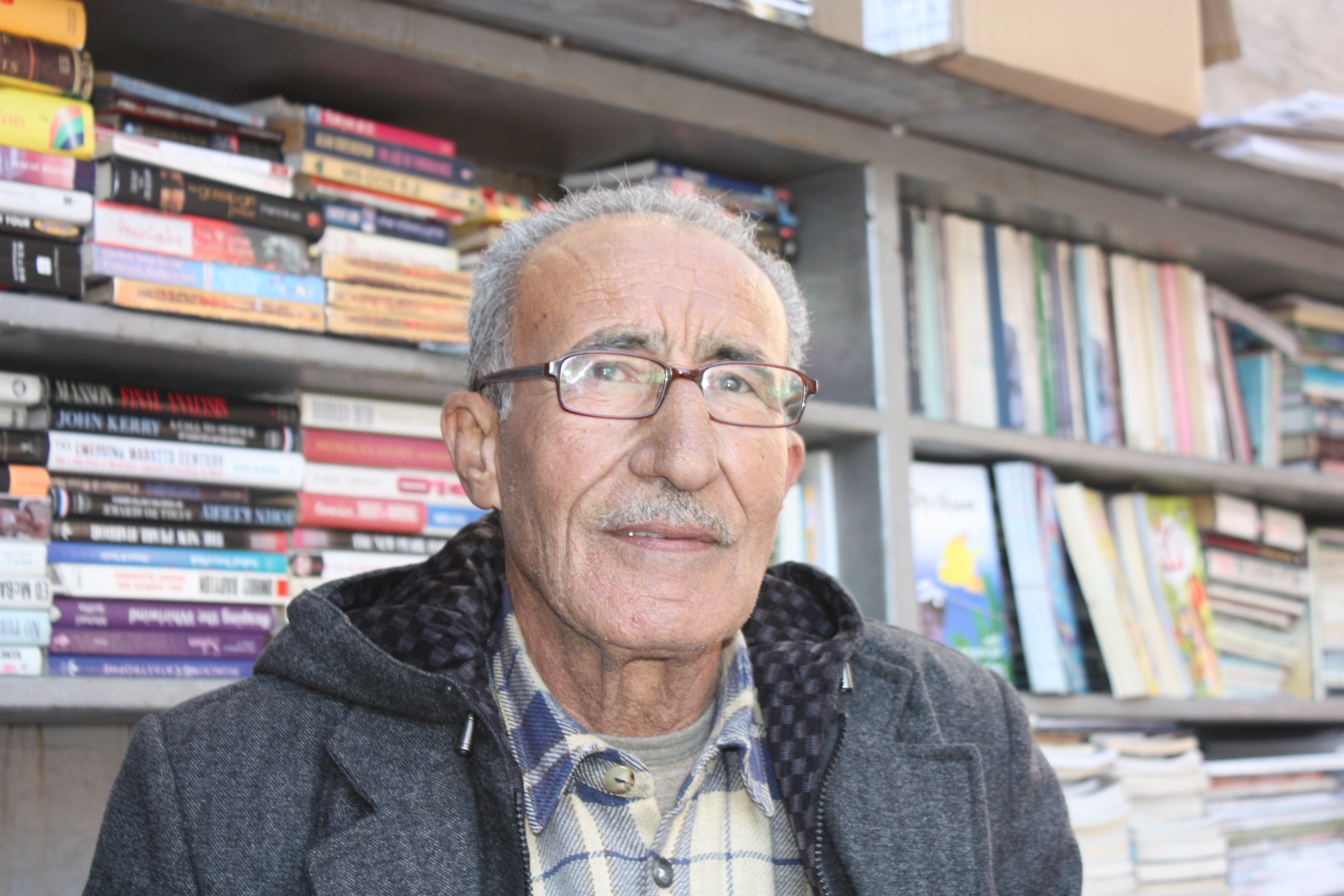 |
| Hassan Abu Ali [Al Jazeera] |
Oh… 2014? Where shall I begin and where shall I end?
Such an awful year. Can we count all of these innocent people that were killed? … The heads that were cut? The blood we have seen everywhere? The appearance of a fake version of Islam called ISIL. Where did that come from? Who created it?
2014 is the year of ISIL. Their vicious practices against humanity did not even happen in Jahyliah [Islamic concept referring to days of ‘ignorance’ prior to the Islamic era]. This is one of the worst years history has witnessed.
I pray for peace all over the world in 2015. I hope Jerusalem will be free and that Palestine will return to us.
Reporting by Areej Abuqudairi, Suadad al-Salhy, Umar Farook, Charlene Anne and Maha Naami